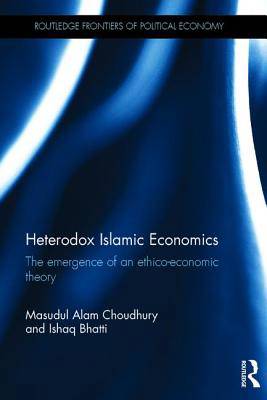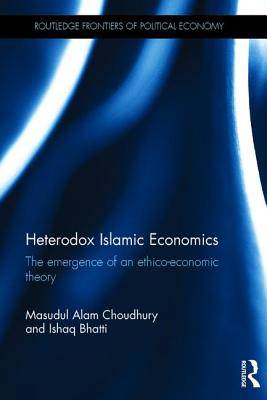
- Retrait gratuit dans votre magasin Club
- 7.000.000 titres dans notre catalogue
- Payer en toute sécurité
- Toujours un magasin près de chez vous
- Retrait gratuit dans votre magasin Club
- 7.000.0000 titres dans notre catalogue
- Payer en toute sécurité
- Toujours un magasin près de chez vous
Description
The fields of morality and ethics have been left out significantly from socio-scientific study in general and in economics and finance in particular. Yet this book argues that in this age of post-modernist analytical inquiry, the study of morality and ethics is an epistemological requirement. This book illustrates the delimiting nature of mainstream economic reasoning in treating morality and ethics and highlights the potential contribution of analytical monotheism, as typified by the Islamic concept of Tahwid.
The principal purpose of this book is to undertake an introductory exploration of the critical area of comparative economic thought in order to place the nature and emergence of ethico-economic theory in its proper context. It is ultimately argued that such a post-orthodoxy revolutionary methodological worldview can be presented by Islamic political economy, Islamic economics and finance.
Spécifications
Parties prenantes
- Auteur(s) :
- Editeur:
Contenu
- Nombre de pages :
- 196
- Langue:
- Anglais
- Collection :
Caractéristiques
- EAN:
- 9781138960831
- Date de parution :
- 02-08-16
- Format:
- Livre relié
- Format numérique:
- Genaaid
- Dimensions :
- 160 mm x 234 mm
- Poids :
- 408 g

Les avis
Nous publions uniquement les avis qui respectent les conditions requises. Consultez nos conditions pour les avis.






